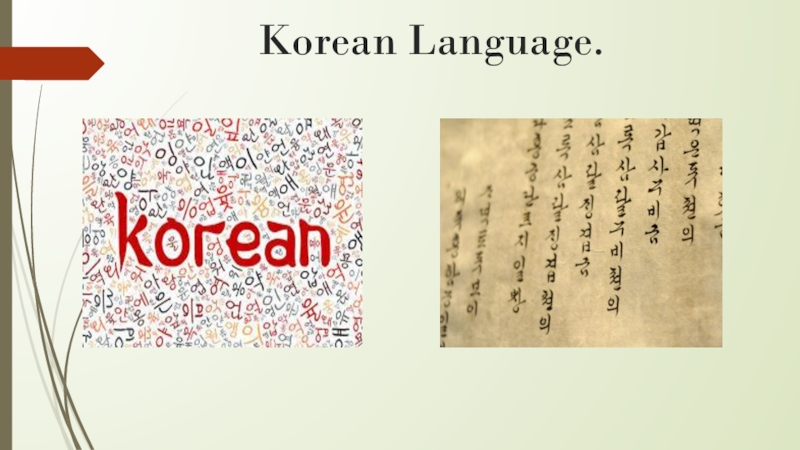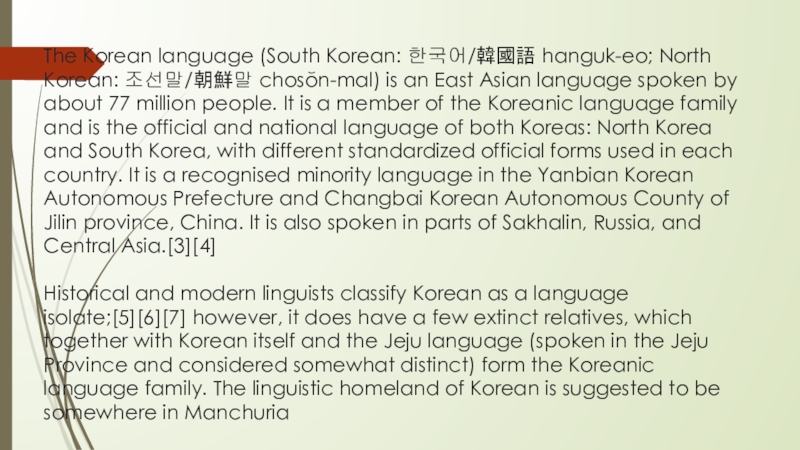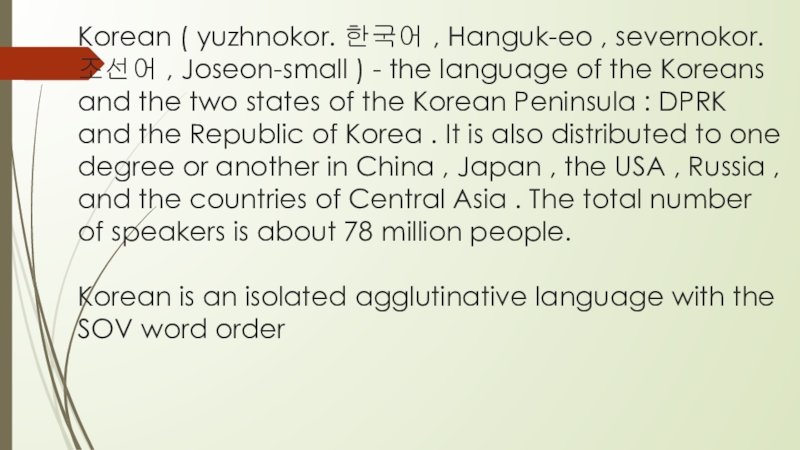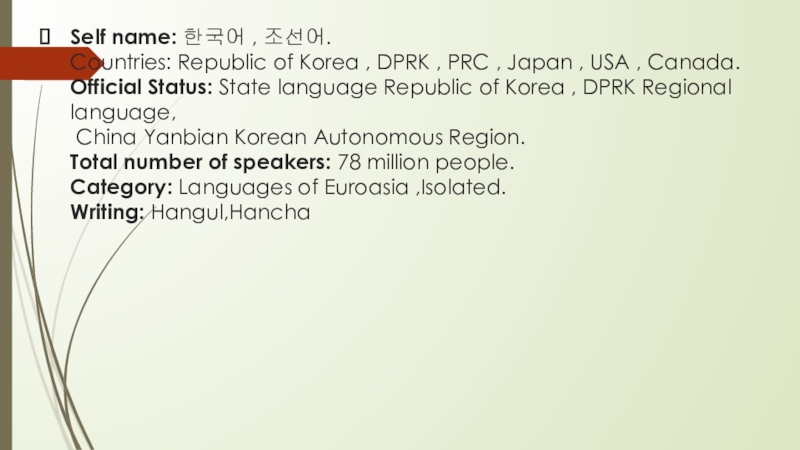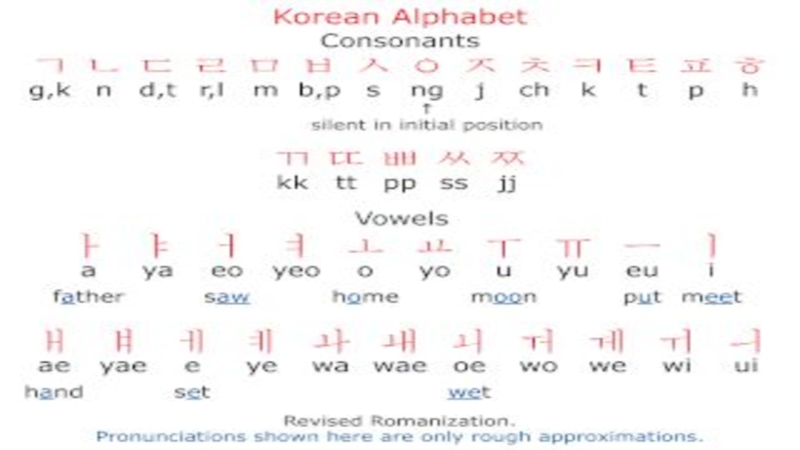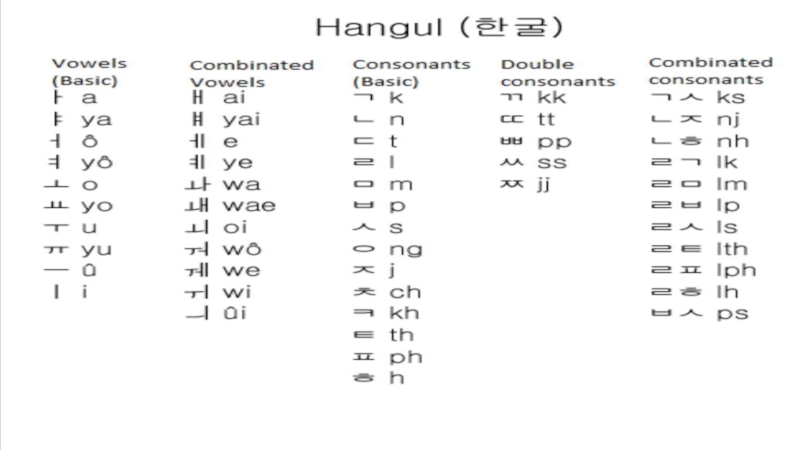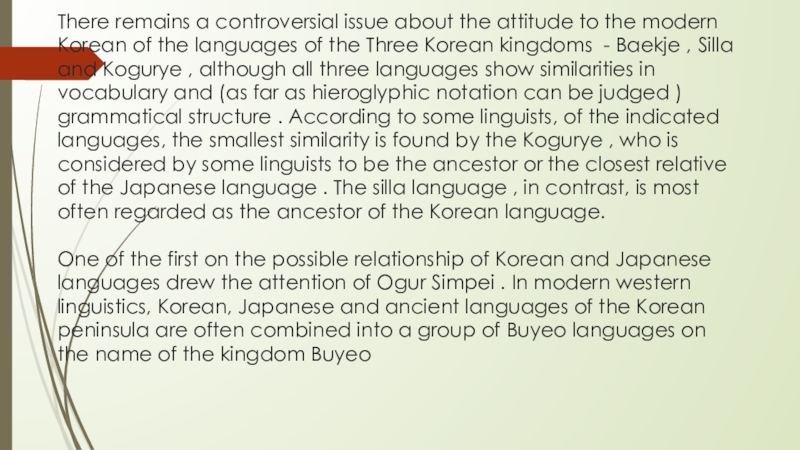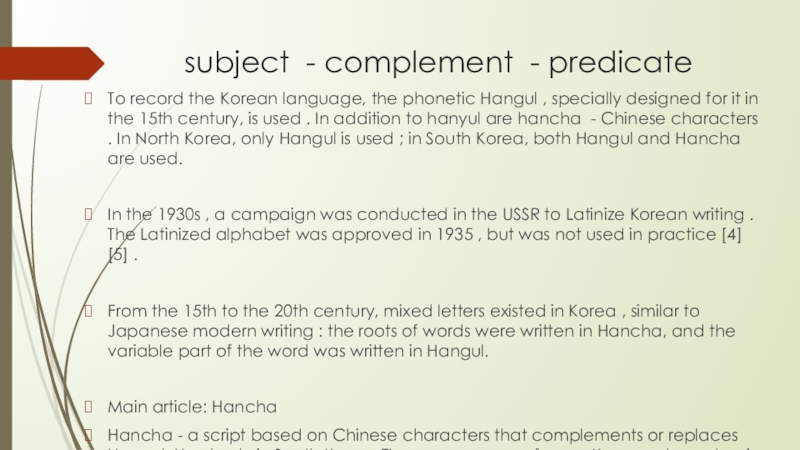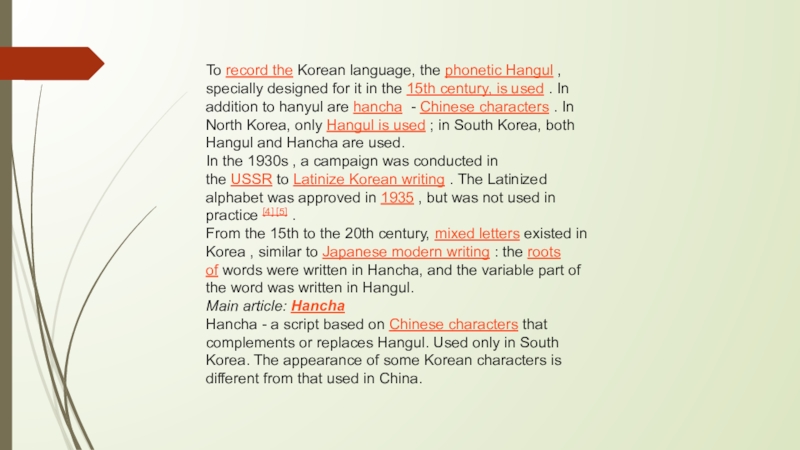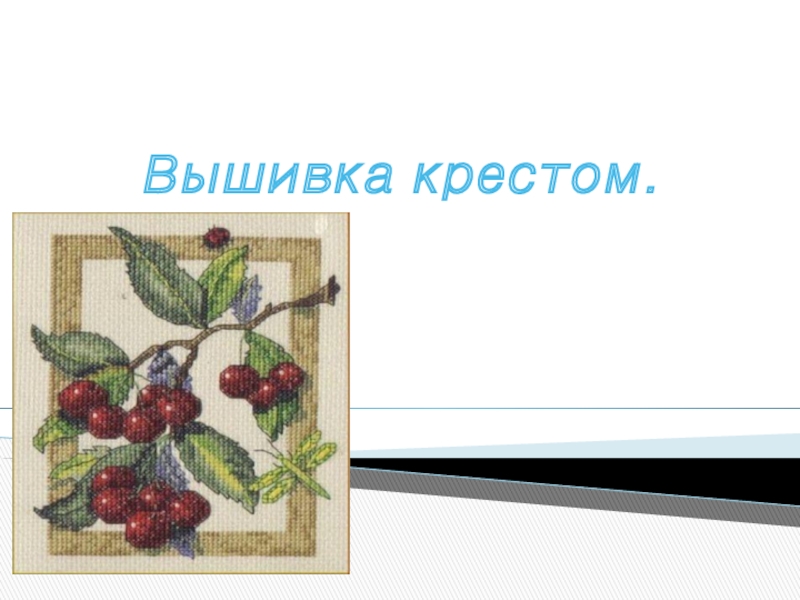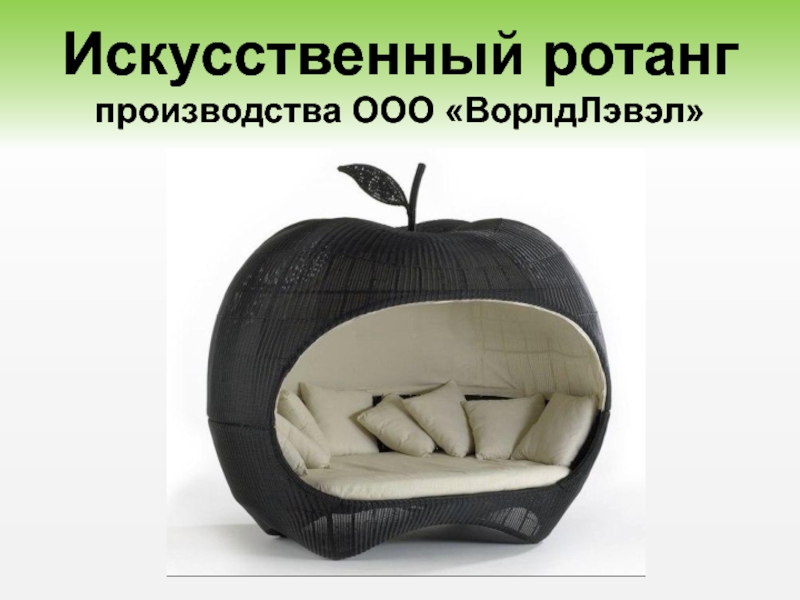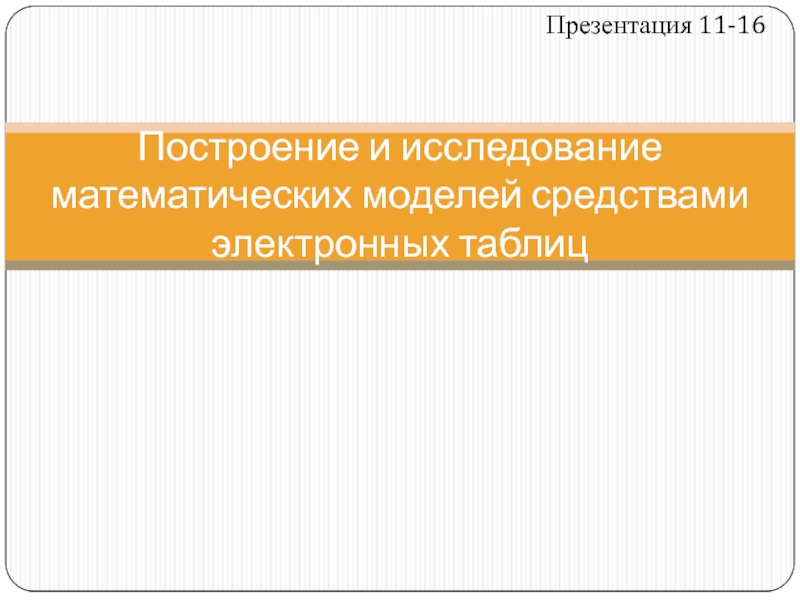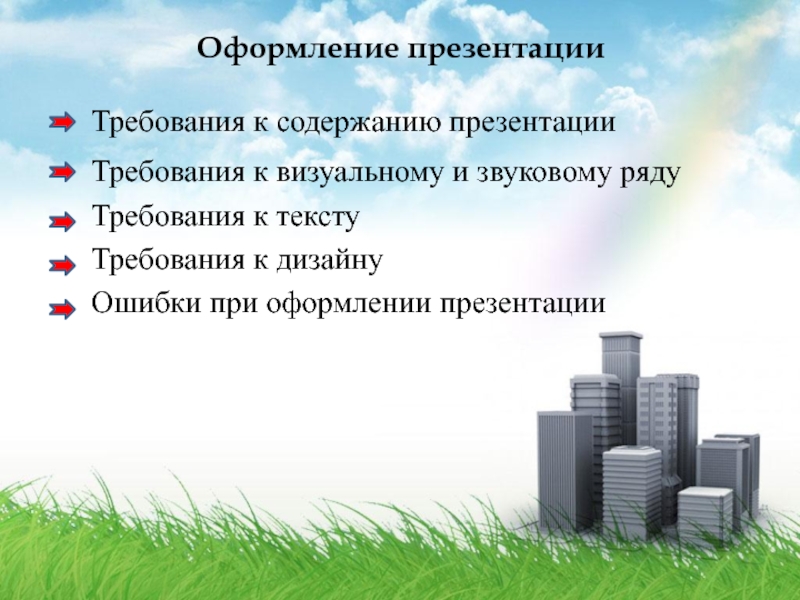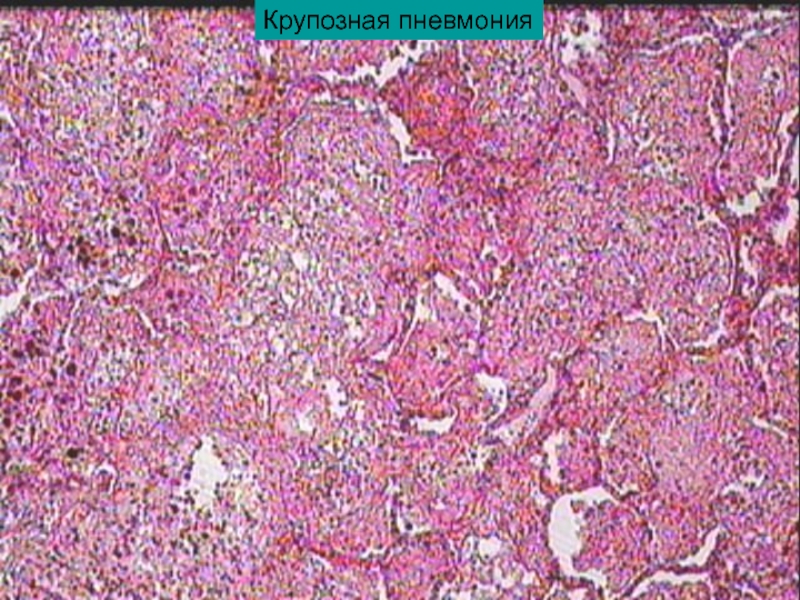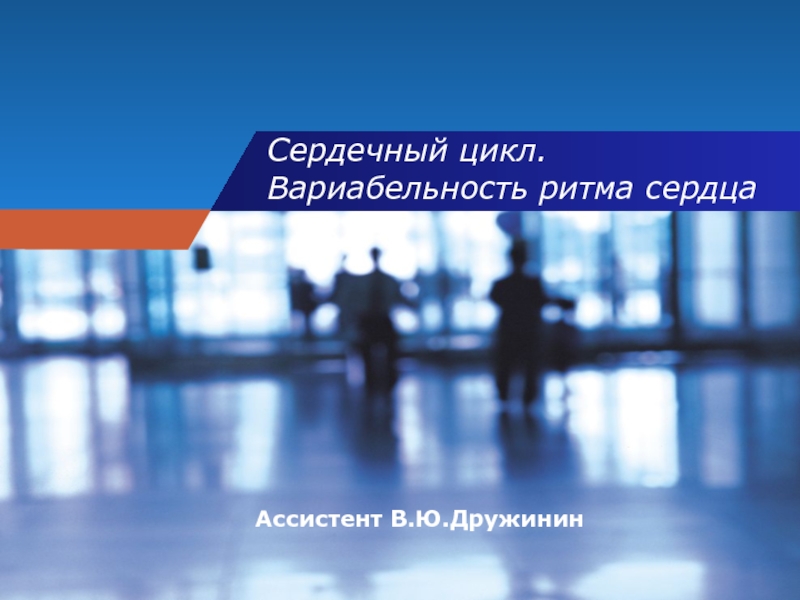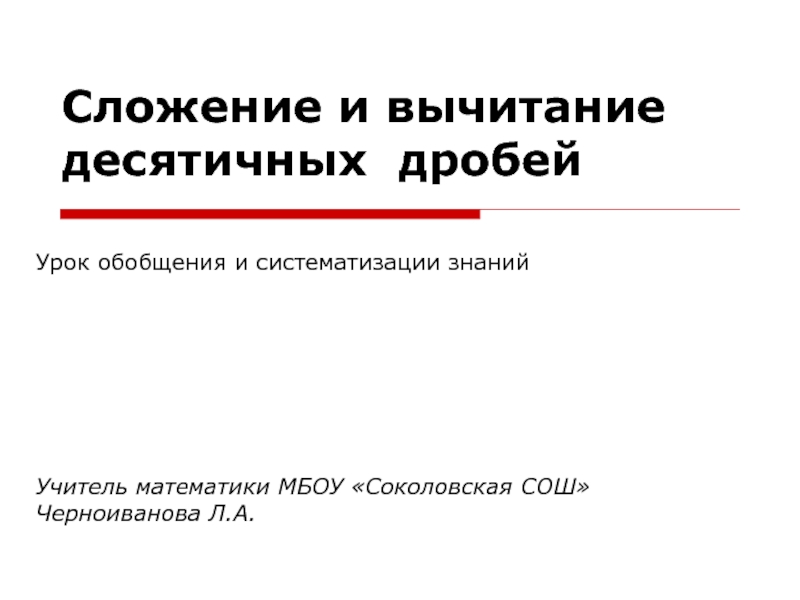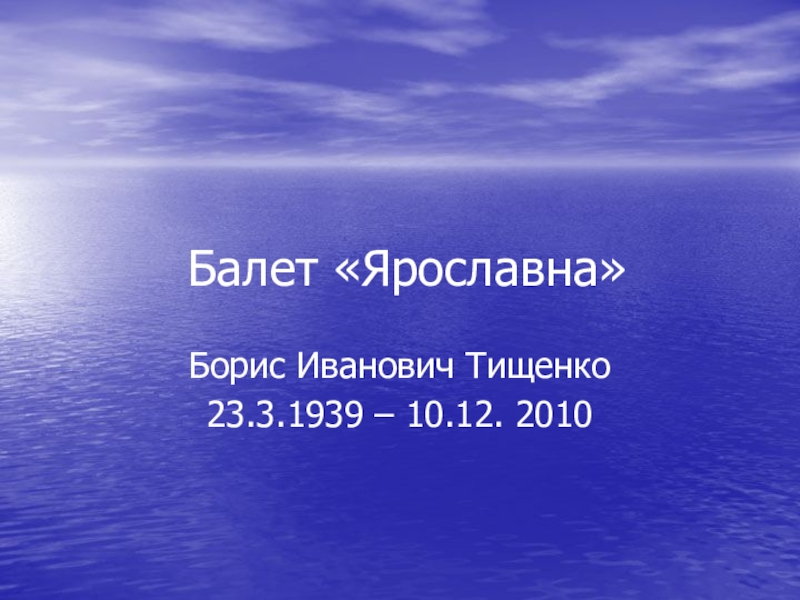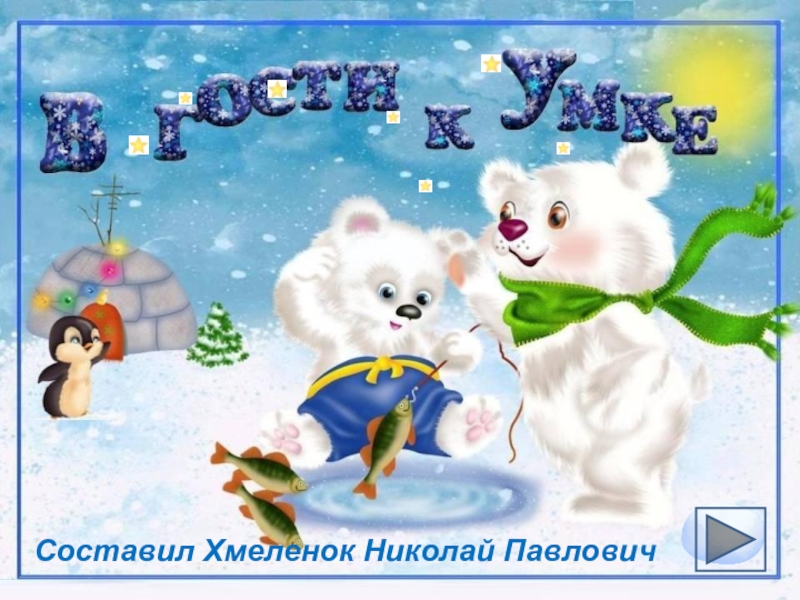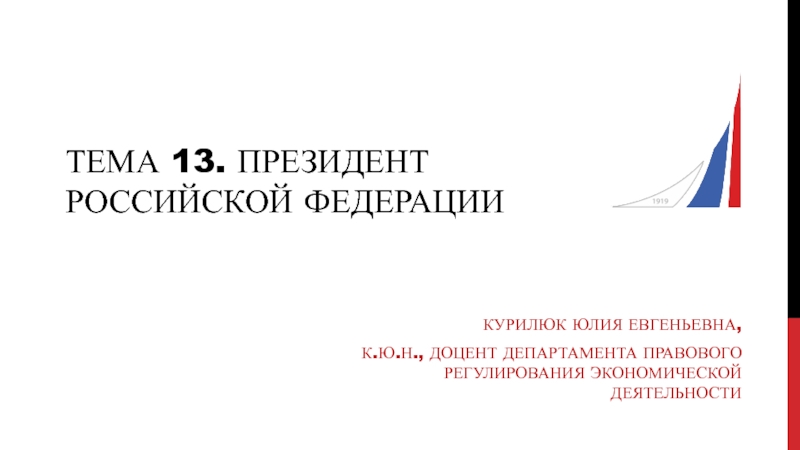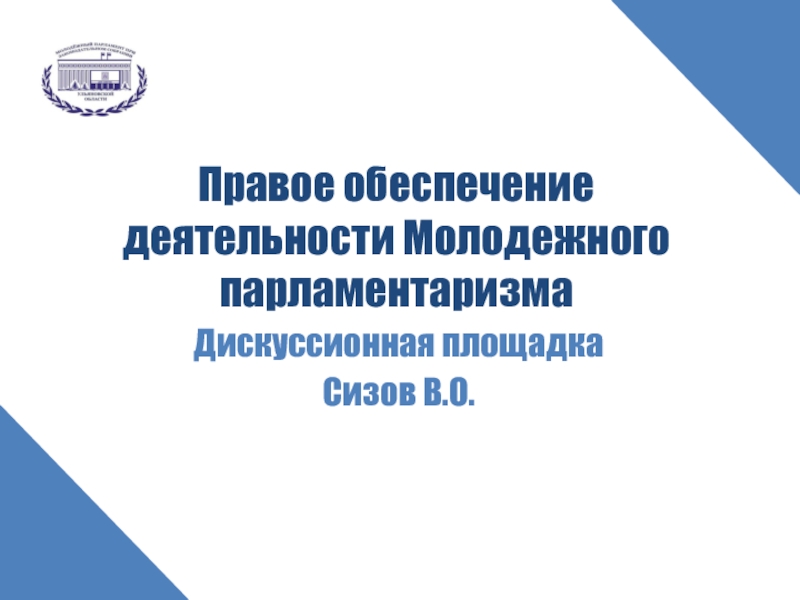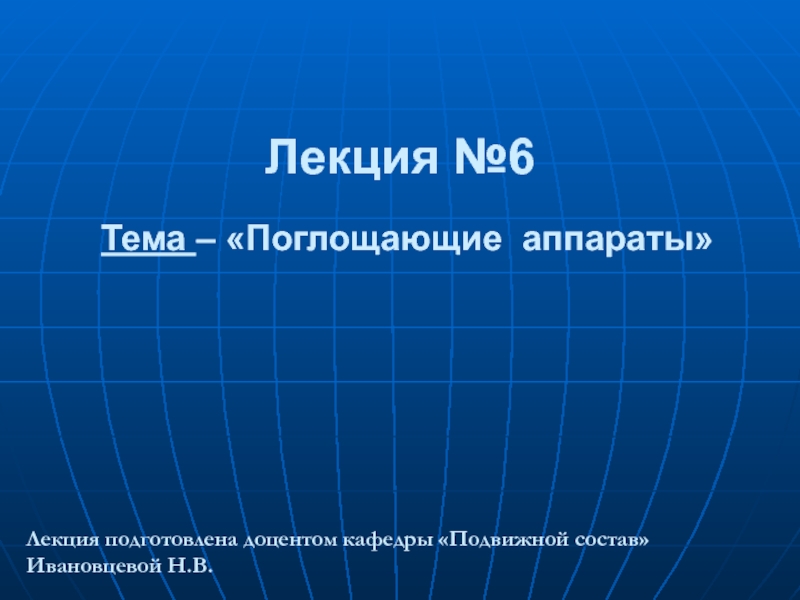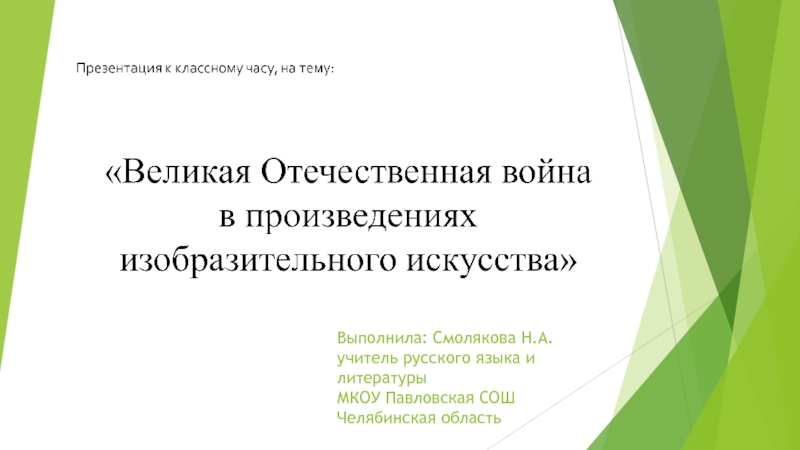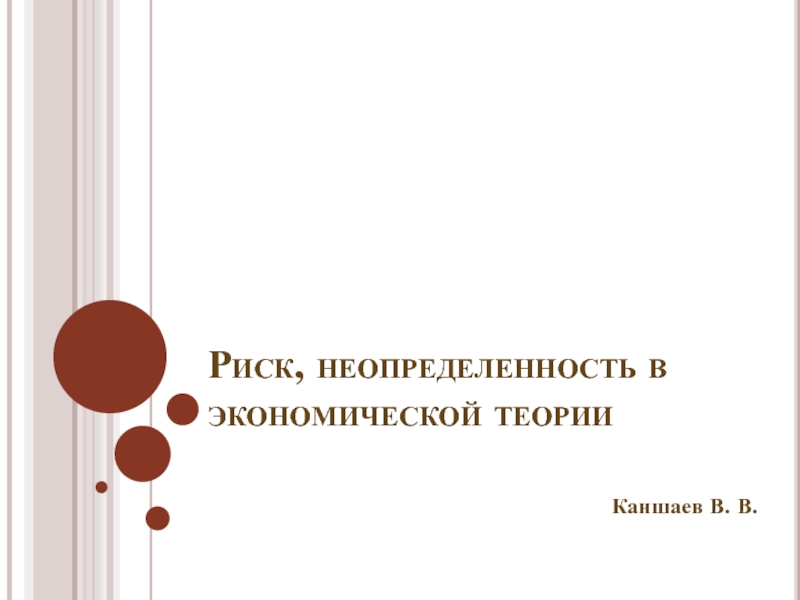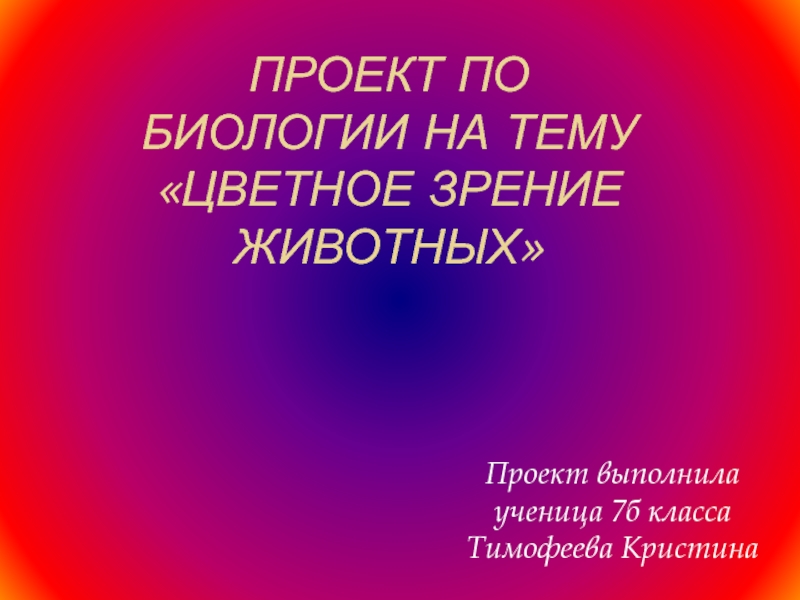Разделы презентаций
- Разное
- Английский язык
- Астрономия
- Алгебра
- Биология
- География
- Геометрия
- Детские презентации
- Информатика
- История
- Литература
- Математика
- Медицина
- Менеджмент
- Музыка
- МХК
- Немецкий язык
- ОБЖ
- Обществознание
- Окружающий мир
- Педагогика
- Русский язык
- Технология
- Физика
- Философия
- Химия
- Шаблоны, картинки для презентаций
- Экология
- Экономика
- Юриспруденция
Korean Language
Содержание
- 1. Korean Language
- 2. The Korean language (South Korean: 한국어/韓國語 hanguk-eo;
- 3. Korean ( yuzhnokor. 한국어 , Hanguk-eo ,
- 4. Self name: 한국어 , 조선어.
- 5. Alphabet.
- 6. Слайд 6
- 7. There remains a controversial issue about the
- 8. subject - complement - predicateTo record
- 9. To record the Korean language, the phonetic Hangul , specially designed for
- 10. Скачать презентанцию
The Korean language (South Korean: 한국어/韓國語 hanguk-eo; North Korean: 조선말/朝鮮말 chosŏn-mal) is an East Asian language spoken by about 77 million people. It is a member of the Koreanic language family
Слайды и текст этой презентации
Слайд 3Korean ( yuzhnokor. 한국어 , Hanguk-eo , severnokor. 조선어 ,
Joseon-small ) - the language of the Koreans and the
two states of the Korean Peninsula : DPRK and the Republic of Korea . It is also distributed to one degree or another in China , Japan , the USA , Russia , and the countries of Central Asia . The total number of speakers is about 78 million people. Korean is an isolated agglutinative language with the SOV word orderСлайд 4Self name: 한국어 , 조선어.
Countries: Republic of Korea , DPRK , PRC , Japan , USA , Canada. Official Status: State language Republic of Korea , DPRK Regional language, China Yanbian Korean Autonomous Region. Total number of speakers: 78 million people. Category: Languages of Euroasia ,Isolated. Writing: Hangul,Hancha
Слайд 7There remains a controversial issue about the attitude to the
modern Korean of the languages of the Three Korean kingdoms
- Baekje , Silla and Kogurye , although all three languages show similarities in vocabulary and (as far as hieroglyphic notation can be judged ) grammatical structure . According to some linguists, of the indicated languages, the smallest similarity is found by the Kogurye , who is considered by some linguists to be the ancestor or the closest relative of the Japanese language . The silla language , in contrast, is most often regarded as the ancestor of the Korean language. One of the first on the possible relationship of Korean and Japanese languages drew the attention of Ogur Simpei . In modern western linguistics, Korean, Japanese and ancient languages of the Korean peninsula are often combined into a group of Buyeo languages on the name of the kingdom BuyeoСлайд 8 subject - complement - predicate
To record the Korean language,
the phonetic Hangul , specially designed for it in the
15th century, is used . In addition to hanyul are hancha - Chinese characters . In North Korea, only Hangul is used ; in South Korea, both Hangul and Hancha are used.In the 1930s , a campaign was conducted in the USSR to Latinize Korean writing . The Latinized alphabet was approved in 1935 , but was not used in practice [4] [5] .
From the 15th to the 20th century, mixed letters existed in Korea , similar to Japanese modern writing : the roots of words were written in Hancha, and the variable part of the word was written in Hangul.
Main article: Hancha
Hancha - a script based on Chinese characters that complements or replaces Hangul. Used only in South Korea. The appearance of some Korean characters is different from that used in China.
Слайд 9To record the Korean language, the phonetic Hangul , specially designed for it in the 15th
century, is used . In addition to hanyul are hancha - Chinese characters . In North Korea,
only Hangul is used ; in South Korea, both Hangul and Hancha are used.In the 1930s , a campaign was conducted in the USSR to Latinize Korean writing . The Latinized alphabet was approved in 1935 , but was not used in practice [4] [5] .
From the 15th to the 20th century, mixed letters existed in Korea , similar to Japanese modern writing : the roots of words were written in Hancha, and the variable part of the word was written in Hangul.
Main article: Hancha
Hancha - a script based on Chinese characters that complements or replaces Hangul. Used only in South Korea. The appearance of some Korean characters is different from that used in China.
